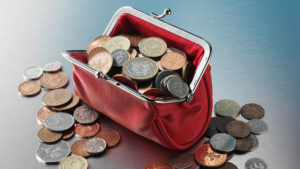Seven Tricks To Avoid The Pre-Payday Blues In 2020

What better way to start 2020 than by getting to grips with your finances?
Being completely upfront with your financial situation can feel daunting. But facing it head-on at the start of the year will make life a lot easier in the coming months.
Having problems? You’re not alone…
- One in eight (13%) Brits are left penniless at the end of the month
- A third (33%) have just 10% of their wages left at the end of the month
- Statistics indicate people are spending less on the day they get paid
Research by pension advice specialist Portafina has revealed that 13% of people surveyed in the UK are left penniless in the run-up to payday, and a third have just 10% of their wage left at the end of the month.
Encouragingly, research shows that over the last couple of years people in Britain are spending 23% less within the first 24 hours after getting paid.
This decrease is good news. It highlights that there are ways to avoid pre-payday blues and indicates that perhaps the nation is moving towards savvier ways of spending.
While changing patterns of spending behaviour can feel difficult, experts at Portafina offer these simple steps to help make the week before payday less of a financial strain.
Three Pots Are Better Than One
If seeing your bank balance as one big sum doesn’t make for comfortable viewing, try separating your spending into individual pots. This will give you a clearer view of which areas of your life you’re overspending on.
The three pots saving approach is well established:
- an account for treats and expected extras – the things that you know are coming up, such as birthdays and trips away;
- an emergency fund to cover life’s unexpected trials; and
- a bigger rainy-day pot.
Review, Review, Review
You may have heard of a juice cleanse, but have you ever cleansed your direct debits? Slimming down how much is regularly coming out of your account could quickly bolster your disposable income.
The easiest way to trim the fat on your direct debits is to shop around every time a subscription or insurance policy is due for renewal. Compare the Market revealed that switching providers could save you £322 on average on your annual insurance premium.
Another consideration is looking at your current TV package. You could save up to £120 a year by saying goodbye to movies, and considerably more if you can go without sports channels.
Pay Yourself First
Treat payday as the day your budget resets. If you’re going to add any money into your savings, do it right away. You’re far more likely to save this way, rather than if you leave it until the end of the month.
Cover Those Bills
Before you splash the payday cash, make sure your bills are covered first. Arrange for all your bills and regular payments to come out as soon as you get paid. This way you will know exactly how much money you have left for the rest of the month and can decide how you plan to spend or save it.
Face Your Debt Head-on
Create a debt hit-list, but don’t target the largest debt first. Instead, look to the debt with the highest interest rate. Clear this debt first and you’ll have the money that was being swallowed up by interest to go towards any other outstanding debts.
If you’ve ranked your hit-list from the highest interest rate to the lowest, you will find yourself with more disposable money each time a debt is cleared.
If trying to tackle debt is leaving you feeling overwhelmed and stressed, there are debt counsellors who can support you through tough times.
Apps And Tools
There are plenty of savings and budgeting apps out there such as Yolt, Squirrel and Money Dashboard. It’s worth spending some time getting to know these apps to find the one that suits you best.
The beauty with a lot of these apps is how they present information. The abstract concept of money is transformed when you can see what sort of difference your actions are having, or when you can see exactly how your money is working for you on one screen.
Pensions – It’s Never Too Early
Don’t forget to think about your future. If your retirement is decades away, your pension could be the last thing on your mind.
However, it’s the savings tool that could make the biggest difference in later life. The key to successfully saving for your future is to start putting money away as soon as you can.
If you are paying into a workplace or personal pension, you might want to think about giving your contributions a little boost every now and then. Paying in a small regular amount each week or month could mean thousands more in your pot.
Jamie Smith-Thompson, managing director of Portafina, added, “It’s encouraging to hear that as a nation, we now seem to take a step back and think more about what we are spending the minute we get our wages.
“Budgeting can be daunting, but it doesn’t have to be dull. Taking the time to think clearly about what you must cover for the month ahead is already a step in the right direction.
“This mindset combined with following a few simple steps will help you to be financially prepared as we say hello to 2020 and most importantly, enjoy what the new year has in store.”









